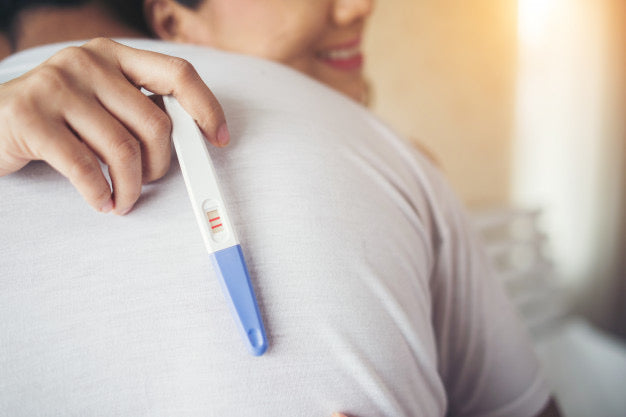
Are you and your partner trying to conceive?
Once you get pregnant, you’ll set on one of the most exciting journeys in your lives!
But before that, though, you might face a few obstacles.
About 9% of men and 11% of women in the US have experienced some sort of fertility issue.
If you’re one of them, you might be thinking of trying a fertility supplement to boost your chances of getting pregnant.
But there’s a lot of ambiguity on how effective fertility supplements are and if they will help you at all.
In this article, we’ll clear up all the confusion around fertility supplements and how exactly they affect your fertility.
We’re going to cover:
- 5+ common fertility supplements
- Do fertility supplements work?
- 15+ fertility supplements we recommend
Let’s dive in!
5+ Common Fertility Supplements
There are a few vital vitamins you can take to prepare your body for pregnancy and significantly boost your fertility.
Different vitamins and nutrients can help you balance your menstruation and ovulation, relieve polycystic ovary syndrome (which is often a cause for infertility), and improve egg quality and maturation.
In men, fertility supplements can increase sperm count, quality, and motility which also increases the possibility of getting pregnant.
The most common vitamins, minerals and nutrients that affect fertility are as follows:
#1. Acetyl And L-carnitine
Who’s it for: Men and women
Benefits: Increases sperm motility in men and promotes healthy female reproductive functions.
Acetyl L-carnitine (ALC) is an antioxidant and a form of L-carnitine (LC) which occurs in the body naturally and helps turn fat into energy.
For optimal results, you can take Acetyl L-carnitine and L-carnitine together.
That’s because LC increases fertility while ALC’s antioxidant properties slow down some of the changes in the female reproductive system caused by aging.
Both ALC and LC can improve male fertility by increasing sperm motility.
The recommended daily dose is from 1 to 3 grams.
#2. Vitamin C
Who’s it for: Men
Benefits: Increases sperm count and mobility.
Vitamin C is another powerful antioxidant. It helps reduce cell damage throughout the body in both women and men. When it’s taken together with vitamin E, though, it can lead to better sperm quality, count, and mobility.
The daily recommended dose of vitamin C for women is 75 milligrams (mg) and for men - 90 mg.
#3. Folic Acid
Who’s it for: Women
Benefits: Helps to get and stay pregnant.
Folic acid is the synthetic form of folate (the natural form of vitamin B9). Both folate and folic acid are converted to methylfolate in your body.
Folic acid is an essential vitamin for both women who are trying to conceive, as well as pregnant women. That’s because folic acid can reduce fetal abnormalities like neural tube defects which can happen as early as the first week of pregnancy.
Taking folic acid before the actual pregnancy can prevent such defects. You can start with a dose of 0.4 - 0.8 mg.
#4. Coenzyme Q10 (CoQ10)
Who’s it for: Men and women
Benefits: Boosts sperm motility in men and improves the ovarian response in in-vitro fertilization (IVF) for women.
While your body produces CoQ10 on its own, you can still increase it’s levels by taking the right supplement, which in turn, increases your chances of conceiving if you’re going through IVF.
Pretreatment with CoQ10 increases the ovarian responses during the in-vitro procedure. CoQ10 is also known for its anti-aging properties and can benefit the egg quality in women over 37 years.
For men, CoQ10 can improve sperm motility and count, but more research is needed to determine its effectiveness.
The recommended daily dose is 600 mg.
#5. Vitamin E
Who’s it for: Men and women
Benefits: Improves sperm motility in men and overall reproductive health in women.
Vitamin E can increase male fertility due to its antioxidant effects. It improves sperm motility in men with low sperm counts and motility issues.
Vitamin E is a component essential for the reproduction processes and can have a positive effect on female reproductive health well. However, more research is needed to fully understand its effectiveness.
The recommended daily dose for adults is 15 mg.
#6. Omega 3
Who’s it for: Men and women
Benefits: Boosts sperm motility in men and increases the chances of pregnancy in women over 35.
Omega 3 fatty acids have anti-inflammatory effects on your body and improve the blood flow to the pelvic organs. It also increases the chances of embryo implantation, lowers the possibility of premature labor, and has a positive effect on fetal brain development.
If you don’t eat omega-3-rich seafood regularly, a supplement is recommended. The daily dose should be between 500 and 1000 mg.
To get the optimal dosage of any of these vitamins consult your doctor so you can determine what will fit your individual needs best.
Do Fertility Supplements Work?
Vitamins, minerals, and other natural supplements do not cure infertility.
What they can do, though, is create and support an optimal conceiving environment in your body, and some of them (like Omega 3 and folic acid) even support a healthy pregnancy.
To get better results, you also need to understand what dosage you need of each vitamin or herb.
Moreover, exceeding the recommended dosage of certain antioxidants and vitamins can do more harm than good, as well as have a negative effect on fertility.
Also, make sure that the fertility supplements you choose will not interfere with any of your other medications.
To get the most out of fertility supplements, you should combine them with healthy lifestyle habits like getting enough sleep (8-9 hours a night), following a nutritious, fertility boosting diet, and reducing stress as much as you can.
These and other natural ways of boosting fertility can increase your chances of conceiving.
Disclaimer: If you and your partner think you might have a condition that prevents you from getting pregnant, a supplementation treatment will not be enough, and we recommend that you consult with a doctor.
That’s the most reliable way to understand the underlying causes of your issue and the different treatments and interventions that you can try.
10+ Fertility Supplements We Recommend
Still wondering which fertility supplement to try out?
We’ve prepared a list with the 10+ most effective fertility supplements!
#1. Maca

Maca is an ancient adaptogenic herb that originates from the Peruvian highlands.
Maca promotes reproductive health and has a positive effect on the libido of both men and women.
The plant also improves male fertility by increasing sperm motility, quantity, and quality.
Adaptogenic herbs like Maca can naturally decrease hormones that are abnormally high and increase hormones that are in their lower boundaries. That makes Maca a great support for hormone balance which can also optimize fertility.
#2. Ashwagandha

Ashwagandha is an ancient evergreen plant that grows in India, the Middle East, and Africa.
The plant has antioxidant properties and it can boost testosterone, sperm quality, and fertility in men. It is also an adaptogen that has a positive effect on reproductive health in both men and women.
Moreover, Ashwagandha is a great supplement if you’re trying to reduce your stress levels and achieve a calm state of mind and body. Don’t forget that stress can also be a reason for infertility issues!
#3. Folic Acid

Folic acid is an essential prenatal and fertility supplement for women. It promotes better egg quality, implantation, and maturation.
Folic acid also improves ovulation regularity and prevents any early fetal defects. That’s because folic acid is a component that supports the proper cell division in your body, including the one of your baby.
For optimal results, you should start taking a folic acid supplement at least a month prior to trying to conceive.
#4. Coenzyme Q10 (CoQ10)

CoQ10 is directly involved in maintaining the optimal quality and quantity of egg cells in the female body. However, with age, the natural production of CoQ10 in your body declines, and that results in a decrease in the number and the quality of eggs ready to be fertilized.
Taking a CoQ10 supplement can help you restore and maintain the normal reproductive functions in your body.
Similarly, CoQ10 can help men who suffer from age-related reproductive issues like reduced sperm count and quality. CoQ10 can increase the concentration of sperm and increase sperm’s antioxidant protection.
#5. Omega 3

Omega 3 is a fatty acid that promotes both female and male reproductive health.
For men, the Omega 3’s DHA molecules are important for the viability and maturity of the sperm cells.
For women, the Omega 3 fatty acids improve egg quality and can boost the chances of pregnancy (especially in women over 35).
To get sufficient levels of Omega 3, you can either stick to consuming fish products twice a week or get it in the form of a supplement.
#6. Vitamin D

Vitamin D stimulates the normal ovarian functions in women and promotes better sperm motility and quality in men.
Vitamin D plays an essential role in both male and female reproductive health and having vitamin D deficiency is associated with infertility issues.
So, if you’re not getting enough sun, a supplement can close the deficiency gap and improve your chances of conceiving sooner.
#7. Selenium
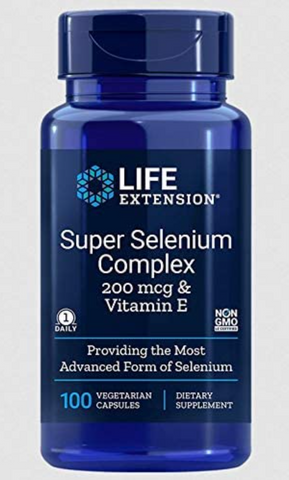
Selenium is a mineral often overlooked when it comes to reproductive health and fertility.
However, it’s an essential supplement that improves semen quality and motility in men. For optimal results, it can be taken in combination with vitamin E.
For women, selenium can reduce the risk of miscarriage and it also maintains the normal levels of follicular fluid that surrounds the egg cells.
#8. Zinc
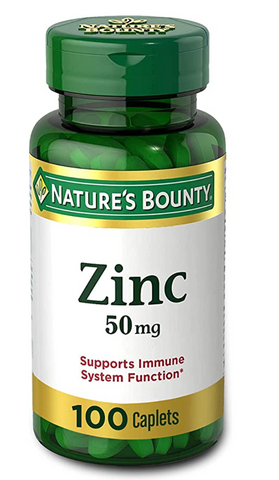
Zinc is a mineral that plays a vital role in the sperm formation process. The deficiency of zinc in males can result in low sperm quality.
In women, lower levels of zinc can result in a longer time trying to conceive.
Making sure you and your partner get enough zinc on a daily basis can improve sperm quality and help you get pregnant sooner.
#9. Red Clover Flower

Red clover, also known as “false unicorn root”, can boost female fertility. That’s because red clover has compounds like isoflavones and phytoestrogens which improve the internal hormone balance.
These compounds regulate your estrogen levels which helps your body prepare for ovulation and boosts the egg production.
Red clover also improves the blood flow and helps thin the mucus which can sometimes be a reason why conceiving might take longer than usual.
You can take red clover as a supplement, or in the form of tea, extract, or a tincture.
#10. Vitex (Chaste Tree) Berry
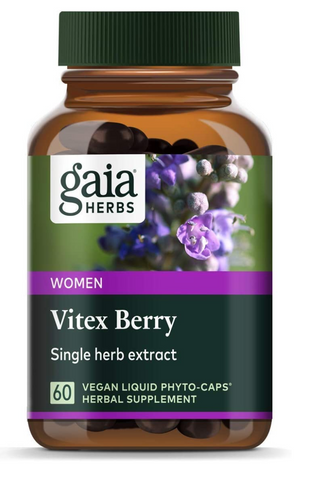
Vitex berry, or also known as Chaste Tree berry, helps to balance and regulate the reproductive processes in your body, increasing your chance of getting pregnant.
Vitex stimulates the production of progesterone and the luteinizing hormone which are responsible for the ovulation process and preparing your body for pregnancy.
It also regulates your cycles and reduces cysts which are often a cause of infertility.
#11. Red Raspberry Leaf

Red raspberry leaves supplement improves uterine health and soothes the uterine muscles. This makes it easier for the embryo to attach to the uterine wall.
Red raspberry leaves also promote healthy progesterone levels which are essential for sustaining a healthy pregnancy.
You can take red raspberry leaves in the form of capsules or as a tea. The best time to start the supplementation is before your ovulation and keep taking it throughout the whole cycle.
#12. Tribulus Fruit
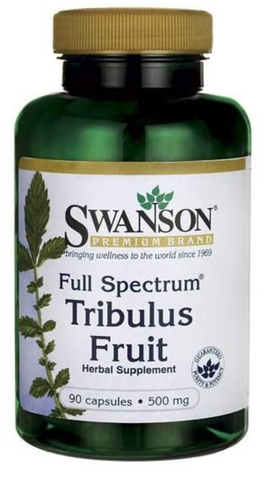
Tribulus fruit extract improves both female and male fertility. For men, Tribulus maintains normal testosterone levels and aids a proper erectile function.
Tribulus can also improve the ovulation regularity and function in women. It also helps to balance any menstrual irregularities and improves the timing of the entire cycle.
For both men and women, Tribulus boosts the stamina, libido, and reproductive health.
#13. Asian Ginseng

Asian ginseng boosts the libido of both men and women.
For men, Asian ginseng helps to increase low testosterone levels, low sperm count and motility, and boost erectile function.
The supplement can also reduce stress levels, strengthen your immune system, and improve your energy levels.
#14. Astragalus Root

Tongkat Ali can boost the male sex hormone - testosterone. Low testosterone levels might lead to a decrease in libido, erectile dysfunction, and result in infertility.
Taken daily for 2-3 months, this supplement can improve both sperm motility and concentration resulting in a boost in male fertility.
Conclusion
Attempting to get pregnant every month with no result can be frustrating.
However, if you don’t have any serious fertility issues, a little bit of patience, the right supplements, and a healthy lifestyle can significantly increase your chances of conceiving sooner than you think.
From all of us at HHH, stay healthy and strong!
